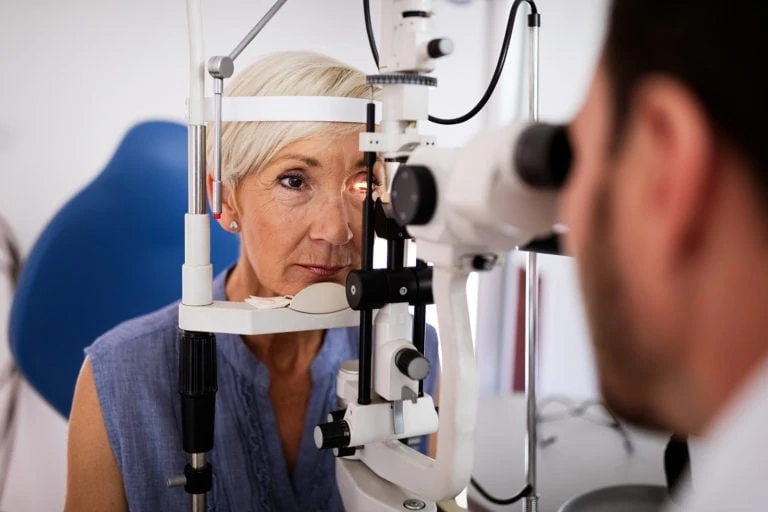Glaucoma is a group of eye conditions that causes damage to the optic nerve. As a progressive disease, patients suffering from glaucoma typically report a decrease in peripheral vision, followed by a decrease in central vision. Left untreated, glaucoma can result in permanent blindness. Except in rare cases, glaucoma doesn’t cause pain or noticeable symptoms. That’s why it’s important to have routine eye checks with your care provider.
Glaucoma is primarily caused by increased ocular pressure; this usually occurs as a result of fluid buildup. This condition can present itself in eyes with normal pressure, so it’s important to be aware of the added risks and signs of glaucoma.
Does Glaucoma Discriminate?
Many demographics are at higher than normal risk of glaucoma. Risk factors include, but are not limited to, race and personal health. Reports have shown that African Americans have a much higher risk than Caucasians, with around a 6 to 8 times increase in likelihood of developing glaucoma. That statistic also translates into the resulting blindness. For Hispanic Americans, apart from having a similar increased risk to African Americans, the disease also seems to pick up speed with age, often deteriorating their eye conditions at a faster pace. Asian Americans are more susceptible in acquiring the less common types of glaucoma (as opposed to the most common, open-angle glaucoma).
Aging and personal health are other important factors in whether glaucoma will affect you or not. If you’re over the age of 40, severely nearsighted, or have a family history of glaucoma, then you may be at risk. For people with diabetes, the risk is twofold. Learning the potential risk factors in developing the condition will do wonders for your personal health.
Treating Glaucoma
Glaucoma can be treated by a variety of medications, laser treatments and surgery. Medication is often the preferred approach because it is less invasive. Eye drops which work to lower your eye pressure, are usually prescribed for glaucoma and are typically very effective. Many patients experience difficulty keeping up with postoperative instructions, so it’s important to remain diligent with medication and follow-up visits.
Laser treatment is the primary defense against external or internal eye pressure, releasing any built-up fluid in the eye. Surgery is an option for those patients that failed treatment with medications or lasers. Both laser and conventional surgeries are used to treat glaucoma. Make sure to keep up with your treatments in order to ensure the best results.
Schedule an Appointment with Florida Eye Specialists
If you notice any signs of glaucoma, or you have any questions regarding the condition or any other eye problems you may have, request an appointment with Florida Eye Specialists. We offer exams that can help you better understand your personal eye health and can potentially find any underlying risks to your ocular health.

